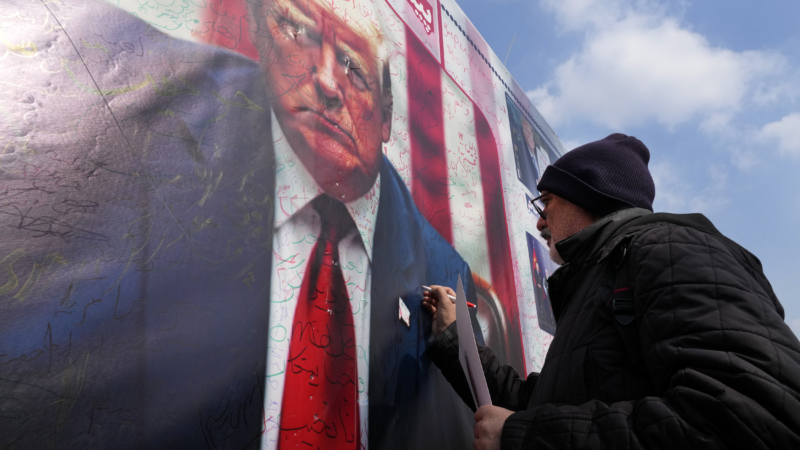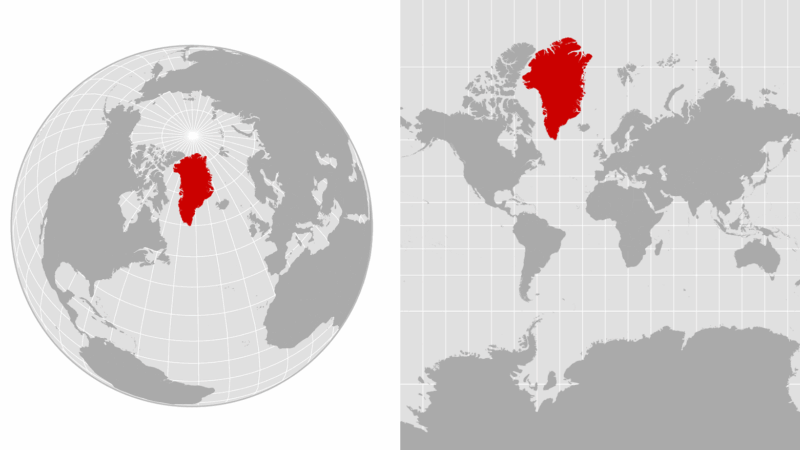The U.S. will hold direct, high-level talks with Iran, Trump says
President Trump said that the United States will hold direct talks with Iran on its nuclear program, starting Saturday.
“We have a very big meeting, and we’ll see what can happen. And I think everybody agrees that doing a deal would be preferable to doing the obvious,” Trump said, as he met with Israeli Prime Minister Benjamin Netanyahu in the Oval Office.
During his first term, Trump withdrew from the 2015 landmark nuclear deal with Iran negotiated by then-President Barack Obama.
Trump offered few details about the upcoming talks, only saying the meeting will be at “almost the highest level.”
Netanyahu, who has frequently called the possibility of a nuclear-armed Iran an existential threat to Israel, said he and Trump are united in the goal that Tehran will never get nuclear weapons.
“If it can be done diplomatically in a full way, the way it was done in Libya, I think that would be a good thing, Netanyahu said. “But whatever happens, we have to make sure that Iran does not have nuclear weapons.”
Trump said it would be in Tehran’s best interests to make a deal with his administration.
“We are dealing with them directly and maybe a deal is going to be made. That would be great, it would be really great for Iran,” he said, warning that if the talks weren’t successful “it will be a very bad day for Iran.”
Gaza ‘freedom zone’
The meeting Monday was the second between the U.S. and Israeli leaders since Trump began his second term. During their first meeting, also at the White House, Trump announced a proposal to remove the Palestinian population of some 2 million people from the Gaza Strip, where Israel has been fighting Hamas since the militant group launched an assault on Israel in October 2023.
Netanyahu’s visit comes just weeks after the Israeli military resumed a major ground offensive in Gaza, shattering hopes that a ceasefire would be extended to get out more the remaining 58 Israeli hostages taken by Hamas 18 months ago. More than 30 are believed to be dead.
Trump said he hoped a new ceasefire could be worked out, and that remaining Israeli hostages would be released.
He also returned to his vision of the future of a post-war exodus of Palestinians from Gaza, which Arab nations have roundly rejected.
“I think it’s an incredible piece of important real estate, and I think it’s something that we would be involved in. But, you know, having a peace force like the United States, there controlling and owning the Gaza Strip, would be a good thing,” he said.
He said if the Palestinians were moved to other countries, the Gaza Strip could then become what he termed a “freedom zone.”
White House says ‘all options’ are on the table for Greenland, including diplomacy
President Trump has long expressed an interest in acquiring Greenland. White House press secretary Karoline Leavitt says Trump isn't ruling out any options, but that diplomacy is his "first option."
ICE agent fatally shoots woman in Minneapolis amid immigration crackdown
The Department of Homeland Security accused the victim of being a "rioter" and that the ICE officer who pulled the trigger was "fearing for his life." Mayor Jacob Frey rejected claims of self-defense.
U.S. population growth is slowing. The immigration crackdown is a major factor
Congressional forecasters have lowered their projection for U.S. population growth over the next decade by 7 million people as a result of the Trump administration's immigration crackdown as well as falling birth rates.
Nick Reiner’s attorney removes himself from case
Defense attorney Alan Jackson said that circumstances beyond his and Reiner's control made it "impossible" to continue representation.
Béla Fleck cancels Kennedy Center appearance, says it’s become ‘charged and political’
The 18-time Grammy Award winner is the latest musician to cancel an show at the Kennedy Center. Béla Fleck says he cannot currently perform there because it "has become charged and political."
How large is Greenland, really? Your map may be deceiving you
Talk of annexation has Greenland in the news again. But due to quirks of cartography, some common maps show the territory much larger than it is.






